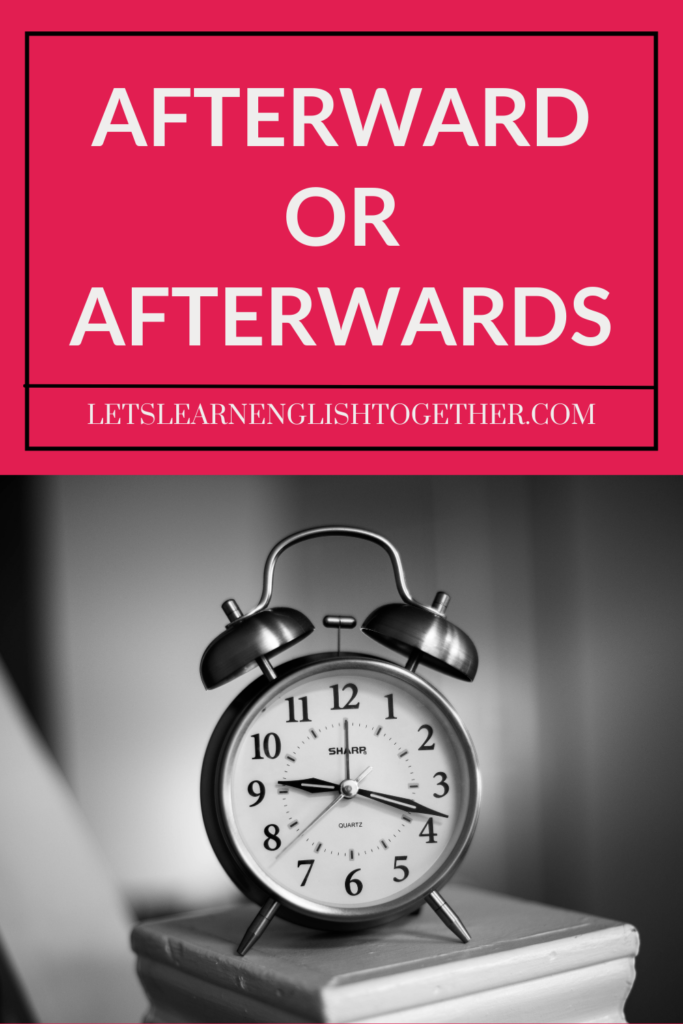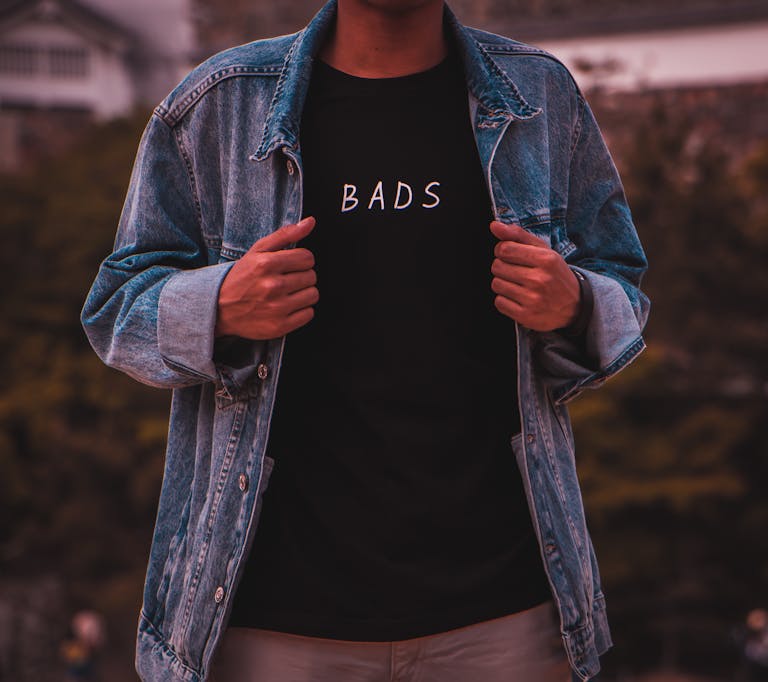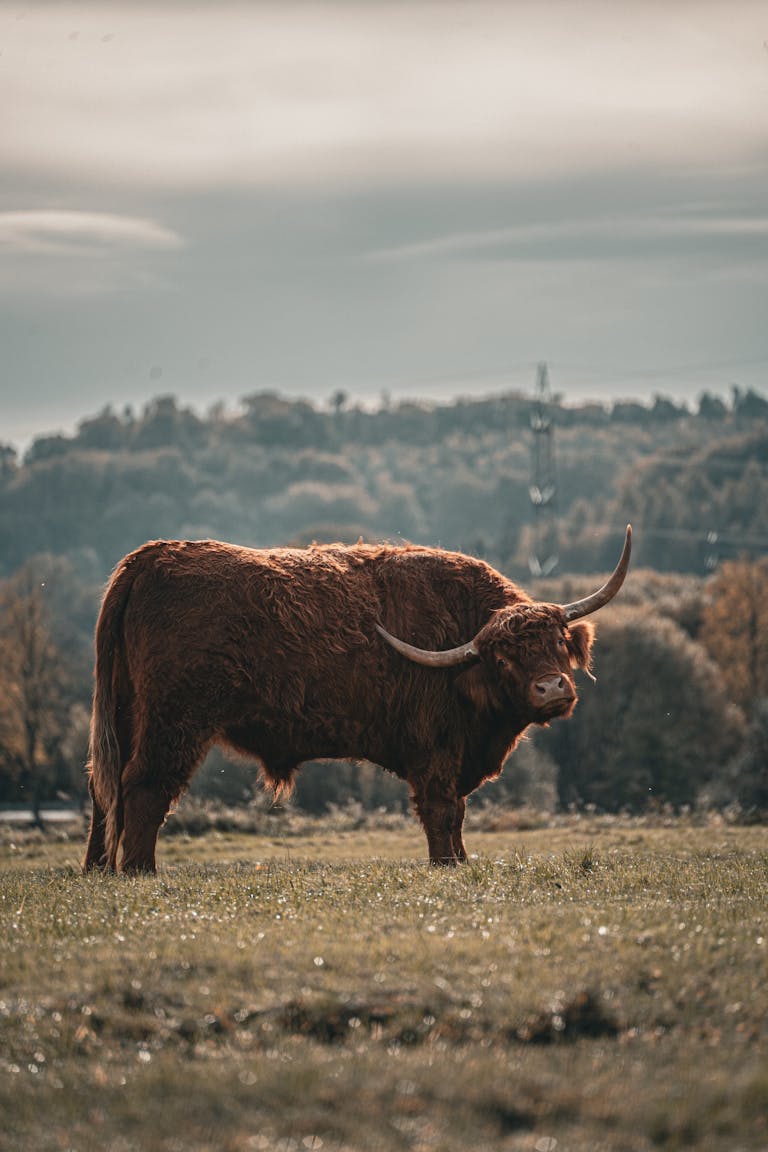Afterward Or afterwards
This post may contain affiliate links. I may receive a commission for purchases made through these links at no additional cost to you.
“Afterward” or “afterwards”? They sound similar but which one is right to use?
In this guide, we’ll cover:
– Correct spelling and grammar rules
– How to pronounce each term
– Their meanings and origins
– Regional preferences
– Proper usage in sentences
– Common mistakes to avoid
– Tips, examples, and more
By the end, you’ll be a pro at distinguishing between afterward and afterwards and applying them properly in your own writing.

How to Pronounce Afterward and Afterwards
The pronunciation of “afterward” is relatively straightforward:
/ˈæf.tər.wərd/ (AF-ter-werd)
Break it down into syllables:
- “af” – like the beginning of “affirmative”
- “ter” – like the end of “laughter”
- “ward” – rhymes with “bird”
For afterwards:
Af-ter-wards (/ˈɑːf.tɚ.wɚdz/)
It’s the same as afterward but with a z sound at the end,
There is little audible difference, which contributes to the confusion between these two terms.
See also:
Key Difference: Meanings of Afterward vs Afterwards
Afterward and afterwards have similar meanings:
Afterward: An adverb used to indicate something happening at a later time, after something else.
For example:
- We had dinner, then watched a movie afterward.
Afterwards: A preposition or adverb referring to a time following a specified event.
For example:
- We will discuss business matters first in our meeting and catch up casually afterwards.
The key distinction is that afterward functions as an adverb describing when something occurs in relation to another action. Afterwards can serve as either an adverb or preposition to broadly mean the subsequent time following something else.
Why So Confusing: The Origins
To understand the subtle spelling differences, we have to go back to the origins of the -ward and -wards suffixes in Old English:
- Ward comes from the Old English weard, meaning “turning” or “changing.” It forms adverbs from nouns.
- Wards originated from the Old English adjective weard, used in phrases like “toward the stern.” It forms prepositions and compound nouns.
So while they sounded identical when spoken, the terms served different grammatical functions when written.
- But over time in modern English, the adverb/preposition boundary blurred and we ended up with two words spelled slightly differently that now overlap heavily in meaning.
Regional Preferences: Afterward Or Afterwards
Another layer of complexity is that usage conventions differ between American English and British English. Here’s an overview:
- Afterward (with the adverbial -ward ending) is preferred in American English.
Afterwards is considered standard in British English, especially when used as a preposition rather than an adverb.
So in the United States, someone would write “We chatted for a while afterward.” But in the U.K., it would be “We chatted for a while afterwards.”
Using Afterward and Afterwards Properly
Because the meanings overlap so much now, afterward and afterwards are generally interchangeable in most contexts without changing the meaning significantly.
However, there a few guidelines to follow:
– When used as an adverb describing something happening after something else, stick to afterward, regardless of regional dialect.
For example:
- We took a short break afterward before continuing our meeting.
– When using it as a preposition or adverb to broadly mean “after”, afterwards is preferred in British English while afterward would be standard in American English.
For example:
- American English: We caught up casually afterward.
- British English: We caught up casually afterwards.
– Avoid interchanging them mid-sentence or passage. Pick one form and stick with it for consistency.
How to Remember the Difference
Since the pronunciation is identical, remembering how to spell each word can be challenging. Here are some tips:
-Break down the suffixes:
- Afterward contains ward = an adverb
- Afterwards contains wards = a preposition/adverb
– Use the syntax test:
- If you can replace it with “later” or “subsequently”, use afterward
- If you can replace it with “after” on its own, use afterwards
– Associate with cultural dialects:
- Afterward is the American way
- Afterwards is more common in Britain
What Afterward and Afterwards Are Not: Common Mistakes
Some other similar-sounding terms cause frequent mix-ups with afterward or afterwards:
- Afterword: A concluding section or footnote at the end of a book or other piece of writing. It has a distinct meaning relating to literary analysis or commentary after the main text.
- Aftercare: Care or attendance provided to a patient after hospital discharge or completion of a medical treatment.
- After-effects: Consequences that arise following the initial impact of something.
The key difference to remember is that afterward and afterwards function as adverbs referring to sequences of events in time. They indicate something occurring after something else. The other terms have entirely distinct meanings unrelated to verb tense or time.
Afterward and Afterwards in Sentences
One way to get more comfortable distinguishing between afterward and afterwards is seeing grammatically correct usage in example sentences:
Afterward (American English):
- I went for a run afterward even though I was already tired from my strength workout.
- We chatted for over an hour afterward, catching up on everything we’d missed.
- I like to relax with a book or TV show afterward before starting any chores around the house.
Afterwards (British English):
- We discussed business matters first in the meeting and caught up casually afterwards over lunch.
- Afterwards, we always gather in the living room for tea and biscuits.
- We met at a cafe beforehand, then saw a film afterwards.
Note how the American examples use afterward as an adverb to describe one action happening subsequent to another, while the British examples use afterwards more flexibly as both an adverb and preposition to refer to the general time following a stated event.
Why Usage Matters
Getting tripped up over small differences like afterward vs. afterwards can undermine your credibility as a writer, especially in formal contexts:
- Inconsistent usage throughout an essay or book creates a sloppy impression many readers will notice.
- Using the less preferred form for your cultural dialect makes you seem unaware of basic spelling and grammar conventions.
However, an occasional slip or alternative usage generally won’t significantly detract from your writing.
The key is being aware of the core distinctions between the terms to inform your language choices on a case by case basis.
Mastering afterward vs afterwards takes practice more than memorization.
A Deep Dive: Parts of Speech and Word Roots
To recap, the key elements distinguishing afterward and afterwards:
Parts of speech:
- Afterward = adverb
- Afterwards = adverb and/or preposition
Word roots:
- Ward = Old English for “turning”, now signifies an adverb
- Wards = Old English meaning “in the direction of”, now used for prepositions
In modern English, there is significant overlap allowing afterward and afterwards to function as adverbs referring broadly to something happening after something else.
But the original suffixes that informed the distinct spellings (-ward vs -wards) still relate to use as an adverb strictly referring to time sequence rather than a preposition or noun.
Being mindful of those subtle parts of speech and etymological implications can help guide your instincts for when afterward may be more precise than the catch-all afterwards.
Separating Afterward from Afterword
One final note of caution: don’t confuse afterward with afterword! Afterword refers to a concluding section at the end analyzing the main body of writing.
So while afterward relates to sequences of time within the content itself, an afterword is essentially paratextual commentary tacked on afterward (see what we did there?).
The Bottom Line
We know afterward and afterwards are basically interchangeable. But being mindful of regional conventions, parts of speech implications, and other common mix-ups allows you to use these terms properly.
To review:
- Afterward is preferred in American English
- Afterwards is more common in British English writing
- Use afterward when specifically describing something happening after something else
- Don’t mix up with afterword or other similar terms
If you remain conscious of these key distinctions, you’ll never again second-guess if it should be afterward or afterwards.




